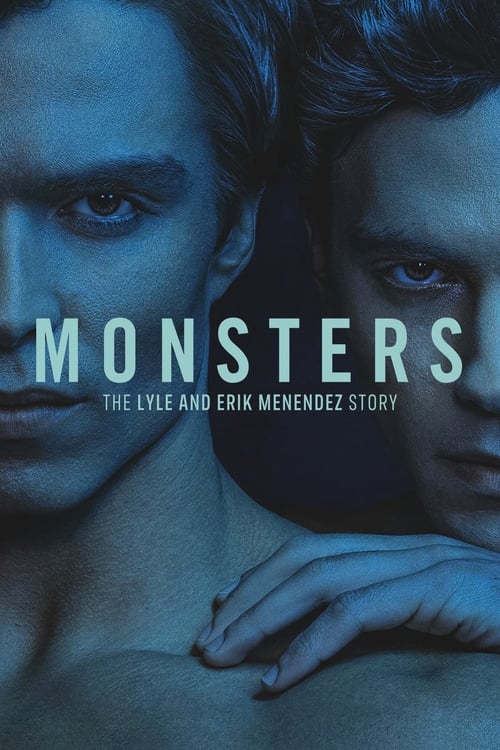Ask Your Own Question
What is the plot?
The series begins with the Menendez brothers, Lyle and Erik, living under the roof of their wealthy parents, José and Kitty Menendez. Early scenes establish the family's outward appearance of affluence and normalcy, but quickly reveal the brothers' growing fear and resentment due to years of physical, emotional, and sexual abuse inflicted by their parents. The tension escalates as the brothers struggle with their trauma and isolation.
One night, after a particularly violent confrontation with their father José, Lyle and Erik decide to take drastic action. They arm themselves with shotguns and enter their parents' bedroom. The brothers shoot José and Kitty multiple times, killing them both in a brutal and chaotic scene. The immediate aftermath shows the brothers in shock and panic, trying to cover up the crime by staging the scene to look like a robbery gone wrong.
Following the murders, Lyle and Erik live in a state of denial and fear, attempting to maintain their daily routines while hiding their guilt. They are shown grappling with paranoia about being caught and the moral weight of their actions. The brothers' relationship is strained but also marked by a shared secret that isolates them from the outside world.
The police investigation begins with detectives questioning neighbors and family friends. Suspicion gradually falls on the brothers due to inconsistencies in their stories and evidence found at the crime scene. A key turning point occurs when Judalon, a family acquaintance, reveals to the police the existence of Dr. Oziel's case tapes, which contain the brothers' confessions. The police raid Dr. Oziel's house, confiscate the tapes, and listen to the recorded confessions, leading to the arrest of Lyle and Erik.
Once in jail, the brothers face the harsh realities of incarceration. They struggle to adjust to prison life, with Erik forming a tentative friendship with another inmate. Both brothers initially deny the severity of their situation and the possibility of facing the death penalty. Their lawyer, Robert Shapiro, informs them of the gravity of their charges and the potential for capital punishment, which shocks them into confronting the consequences of their actions.
Erik contemplates telling the truth about the abuse they suffered at the hands of their parents, hoping it might mitigate their sentence. However, Lyle refuses to cooperate, leading to tension between the brothers. A prison guard uncovers a plan by Lyle to escape with Erik, prompting the authorities to separate them by transferring Erik to a different cell.
The family fires Robert Shapiro and hires Leslie Abramson as Erik's new lawyer. Under Leslie's guidance, Erik opens up to Dr. William Vicary, a psychologist, revealing that he was sexually abused by Lyle, mirroring the abuse José inflicted on him. This revelation becomes a critical part of their defense strategy, portraying the brothers as victims of long-term abuse rather than cold-blooded killers.
Throughout the trial, Leslie Abramson works tirelessly to build a case that highlights the brothers' traumatic upbringing and the abuse they endured. The courtroom scenes depict intense confrontations between the prosecution and defense, with the brothers testifying about their experiences and the events leading up to the murders.
Despite the defense's efforts, the jury convicts Lyle and Erik of first-degree murder. The series concludes with the brothers being sentenced to life imprisonment without the possibility of parole. The final scenes show them adjusting to their new reality behind bars, reflecting on their past and the consequences of their actions.
What is the ending?
The TV show Monsters: The Lyle and Erik Menendez Story (2024) ends with the Menendez brothers, Lyle and Erik, being found guilty of murdering their parents and sentenced to life in prison without the possibility of parole. The final episode depicts their second trial after a hung jury in the first, showing the legal battles and media spectacle surrounding the case. The series closes by inviting viewers to consider who the real "monsters" are, highlighting the complex family dynamics and the brothers' claims of abuse.
The ending unfolds in a detailed, chronological narrative:
The final episode opens with a brief focus on the 1995 O.J. Simpson verdict, setting the cultural and legal context of the mid-1990s America, a time when true crime captivated the public. Then the story returns to Lyle and Erik Menendez as they prepare for their second trial after the first ended in a hung jury.
The trial scenes show the brothers' defense team struggling to convince the jury of their claims that they killed their parents out of fear from years of sexual, physical, and emotional abuse. Erik's testimony is notably problematic: he struggles with the microphone, displays awkward behavior, and misremembers key details such as where they bought the shotguns used in the murders. These issues damage the brothers' credibility in the eyes of the jury.
The judge eventually declares a mistrial in the first trial, and the series depicts the emotional toll on the brothers and their legal team. Letters from supporters turn to hate, and internal conflicts arise, such as Jill, a supporter, revealing that Norma, another character, has been recording their calls with plans to publish a book exposing Lyle as a liar.
In the second trial, only Erik is allowed to testify, as Lyle's credibility has been severely undermined. Jill abandons the case due to lack of funds, but Leslie, their lawyer, continues working pro bono out of personal fondness for the brothers.
The series culminates with the verdict: both Lyle and Erik are found guilty and sentenced to life imprisonment without parole. The final scenes show the brothers in prison, reflecting on their fate. The show closes by posing a question to the audience about who the real monsters are, leaving the moral judgment open-ended.
Regarding the fate of the main characters at the end:
- Lyle Menendez: Convicted and serving life in prison without parole.
- Erik Menendez: Convicted and serving life in prison without parole.
- José and Kitty Menendez: Deceased, victims of the murders.
- Their legal team and supporters: Shown to be emotionally and financially strained by the trials.
The series does not depict any reconciliation or redemption but rather focuses on the lasting consequences of the crime and trial, emphasizing the complexity of the brothers' motivations and the public's fascination with true crime.
Who dies?
In the 2024 TV show Monsters, several characters do die, with notable deaths involving brutal and significant circumstances. One key death is that of Tian-Chen Liu, a major character who operates the diner and is Kenny's mother. She is killed in the season 3 premiere when the monsters release farm animals to lure townspeople out of safety. Tian-Chen, along with Boyd and Jade, tries to secure the cows in a barn, but the monsters surround them, tie Boyd to a post, and then slowly and cruelly rip Tian-Chen apart while Boyd watches helplessly. This event marks a major turning point in the series and deeply affects the town's social structure.
The monsters themselves are revealed to be immortal and have a dark origin involving the sacrifice of their own children, which explains why no child monsters appear. This adds a layer of horror and mystery to the deaths caused by these creatures throughout the series.
Other deaths occur throughout the show, including various supporting and unnamed characters, but Tian-Chen's death is the most detailed and impactful in the 2024 series.
No detailed list of other named characters who die or the exact circumstances of their deaths is provided in the available information, but the show is known for its brutal and suspenseful encounters with the monsters leading to multiple fatalities.
Is there a post-credit scene?
Yes, the 2024 TV show Monsters: The Lyle and Erik Menendez Story includes a post-credit scene. This scene takes place on a boat where José and Kitty Menendez have a heartfelt conversation. José expresses to Kitty that what he needed most was her and acknowledges how important she is to him, admitting regret over his past infidelity. He tells her she can return to journalism while he plans to run for Senator in Florida. This moment clarifies that José and Kitty had no intention of harming their children and were looking forward to celebrating new lives with them. Meanwhile, Erik and Lyle Menendez are shown becoming more resolute in their decision to kill their parents, tears streaming down their faces, highlighting the complex emotional and moral dimensions behind their actions.
What specific events lead to the arrest of Lyle and Erik Menendez in the series?
In the series, the arrest of Lyle and Erik Menendez is triggered after Erik confesses to his therapist, Dr. Jerome Oziel, on Halloween 1989, revealing details about the planning and execution of the murders of their parents. Dr. Oziel shares these confessions with his mistress Judalon Smyth, who then tips off the police about the tape recordings of the therapy sessions. The police confiscate the tapes from Oziel's house, hear the brothers' confession, and subsequently arrest Lyle and Erik in March 1990 to await trial.
How does the series portray the relationship between the Menendez brothers and their parents?
The series portrays the Menendez brothers as victims of a lifetime of physical, emotional, and sexual abuse at the hands of their parents, particularly their father José Menendez. Erik reveals to Dr. Oziel and later in court testimony that they were sexually abused by their father, and Lyle suggests physical abuse as well. This portrayal is central to their defense strategy, which claims they killed their parents in self-defense out of fear for their own lives if the abuse were revealed.
What role does Leslie Abramson play in the Menendez brothers' defense in the show?
Leslie Abramson is hired as Erik Menendez's lawyer after the family fires their initial attorney, Robert Shapiro. She helps formulate the defense strategy that the brothers acted in self-defense due to the abuse they suffered. Under her guidance, Erik tells Dr. William Vicary about the sexual abuse by Lyle, which parallels the abuse José inflicted on Erik. Abramson's involvement is pivotal in shaping the brothers' legal approach during the trial.
How does the series depict the brothers' experience in jail before their trial?
After their arrest, the series shows Lyle and Erik struggling to adjust to life in jail. They are initially in denial about the seriousness of their situation and the potential consequences, including the death penalty revealed by their lawyer Robert Shapiro. Erik befriends an inmate, and the guards discover a plan by Lyle to escape, leading to Erik being transferred to a different cell. This period highlights their psychological state and the tension between them as they face the reality of their charges.
Are the therapy sessions with Dr. Jerome Oziel a significant plot element in the series?
Yes, the therapy sessions with Dr. Jerome Oziel are a crucial plot element. Erik confesses the murders to Oziel during these sessions, which are recorded. These tapes become key evidence leading to the brothers' arrest. The series dramatizes these sessions to explore Erik's internal conflict and the psychological dimensions of the case, as well as the ethical and legal implications of therapist-patient confidentiality being breached.
Is this family friendly?
The 2024 TV show Monsters: The Lyle and Erik Menendez Story is not family friendly and contains multiple potentially objectionable and upsetting elements for children or sensitive viewers.
Key content warnings include:
- Graphic and brutal violence, including a very explicit murder scene with gore.
- Severe depictions of child sexual abuse, portrayed in a haunting and disturbing manner.
- Sexual content and nudity, including male genital nudity, brief female nudity, and explicit sexual acts (heterosexual and homosexual).
- Profanity and drug/alcohol use are frequent and severe.
- Intense emotional and psychological scenes, including trauma, emotional breakdowns, and disturbing family dynamics.
- Controversial and sensitive themes, such as incest implications (fictionalized in the show), HIV-related scenes, and abuse allegations.
The series is a dark, true-crime drama that explores complex and disturbing real-life events with graphic realism and emotional intensity, making it unsuitable for children and potentially distressing for sensitive adults.






